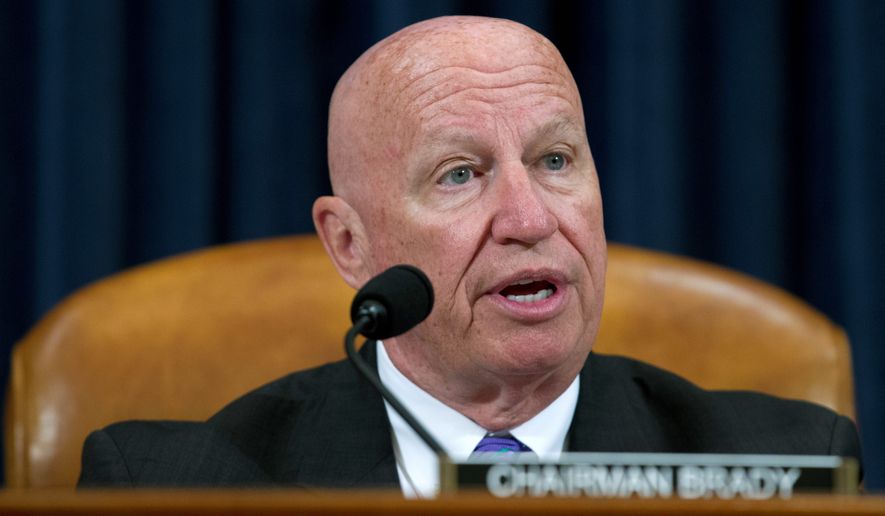Republicans rejected Democrats’ efforts Wednesday to increase money for job training or child care for those on welfare, keeping their massive reform bill on track for approval in a key committee.
The bill would tighten eligibility requirements for federal assistance and ask states to pressure recipients to find and keep jobs.
Kevin Brady, Texas Republican and House Ways and Means chairman, hopes to approve the legislation in committee Thursday.
Passing the bill is a major goal of outgoing House Speaker Paul D. Ryan, Wisconsin Republican. He counts it as part of his legacy-building anti-poverty agenda.
Republicans say too many people stay on welfare rolls indefinitely, keeping them out of the productive workforce and sapping taxpayer-funded benefits.
The bill, dubbed the Jobs for Success Act, would make states work with welfare recipients to find employment and would score states on their ability to place and keep their residents in jobs.
The bill also would require states to describe how they are using federal funds rather than just detailing how much is spent, and would limit benefits to those making no more than 200 percent of the federal poverty level.
Right now, there is no federal limit on who can receive assistance. States receive block grants and set their own caps.
“The Jobs for Success Act focuses on making sure truly needy families are provided meaningful access to the services and supports they need to move up the economic ladder, not just getting a check every month,” said Rep. Adrian Smith, Nebraska Republican.
Democrats, though, complained that the bill fails to invest in their goals.
Rep. Richard E. Neal, Massachusetts Democrat, proposed adding $1 billion per year in education and workforce development money. Rep. Linda T. Sanchez, California Democrat, called for increasing funding for child care and creating more than 560,000 slots for families that need the service so parents can go to work.
Both plans would have funded by increasing corporate tax rates.
Republicans, who recently trimmed corporate tax rates, rejected the Democrats’ amendments.
The fight signals the likelihood of party-line votes in committee and later on the House floor, and the legislation is unlikely to clear a Senate filibuster.
But House Republicans said it is time to revisit the massive welfare system they overhauled during the Clinton administration.
Republican leaders view welfare reform as the final plank of their 2016 campaign agenda, after they overhauled the tax code, rolled back regulations, boosted military funding and took a stab at an Obamacare repeal that died in the Senate.
They said there is a plethora of job openings that could be filled by 7 million able-bodied Americans who could be working but are not.
“America needs these families, our businesses need these workers and their children need to see their parents work and restore that dignity of work,” Mr. Brady said.
His bill would maintain the current funding level of about $30 billion per year, with the federal government posting about $16.5 billion in block grants and states providing the rest in matching funds.
Democrats said funding for the program has been frozen since its inception, amounting to a 35 percent cut once inflation is factored in.
Although they would like more recipients go to work, Democrats said Republicans should have included funding for the job training that will be needed to match people with positions.
“How can we expect people to be successful if we don’t offer them the tools necessary to help them get a job?” said Rep. Suzan K. DelBene, Washington Democrat.
Committee Republicans said the federal government is poor at job training, so their bill would allow states to devise work programs that fit their needs.
• Tom Howell Jr. can be reached at thowell@washingtontimes.com.




Please read our comment policy before commenting.